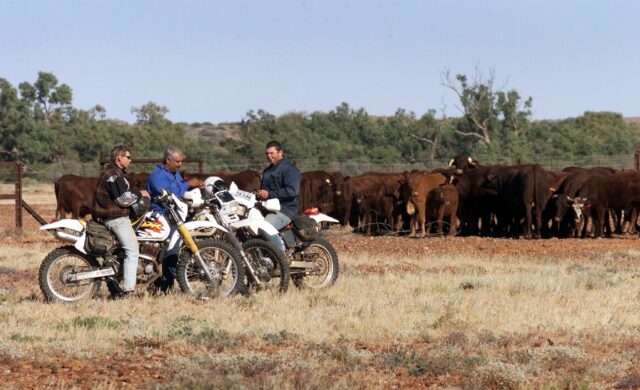Trade deal negotiations between European Union and Australia have collapsed despite earlier optimism, with the two sides exchanging blame on Monday for their failure.
Since 2018, the painstaking discussions have picked through everything from chemicals to cosmetics, but have repeatedly come unstuck over market access for Australian farm products such as beef and lamb.
In July, the two parties failed to reach a deal during talks in Brussels, with Australia saying it had not been guaranteed “significant” access to the European market for its agricultural products.
The talks’ collapse will be a major disappointment to the EU, which is seeking to push through ambitious free trade agreements with major world markets, including India and the Latin American nations in the Mercosur bloc.
Australia’s agriculture minister Murray Watt said on Monday that EU negotiators had refused to budge during the latest round of talks, held on the sidelines of a Group of Seven meeting in Japan.
“Unfortunately we just didn’t get the movement on the EU side that was required,” he told national broadcaster ABC.
Watt said it was unlikely talks would resume during “this current term of parliament” — indicating the Australian government may not return to the negotiating table until after the 2025 general election.
“I think it will be quite some time before any Australian government or any EU leadership is able to negotiate a deal. And that’s a bit of a shame,” Watt added.
The EU’s trade commissioner, Valdis Dombrovskis, in turn appeared to blame Australia, suggesting Canberra backtracked on previous commitments.
“Unfortunately, our Australian partners were not able to engage on the basis of previously identified landing zones,” he said.
Dombrovskis insisted Brussels had presented “a commercially-meaningful agricultural market access offer” to Canberra.
“The European Commission remains open to continue negotiations,” he added.
A European Commission spokesperson said Australia had “re-tabled agricultural demands that did not reflect recent negotiations”.
Beef over meat
“To move forward, we need more realistic expectations and a balanced approach that fully respects the viability of our farmers and the sustainability of our food system,” the EU’s agriculture commissioner Janusz Wojciechowski said on social media.
Last week, French trade minister Olivier Becht flagged a “number of very positive advances”, raising hopes that an agreement would be reached.
The two sides have tussled over how far Europe should prise open its markets to Australia’s lamb, beef and sugar exports.
Another issue for Australia was over EU geographic indicators on products like feta, parmesan and Prosecco, but EU officials said there had been compromises offered so that Australian producers could continue using the terms under certain conditions.
At the same time, Europe wants better access to Australia’s rich deposits of “critical minerals”, easing its reliance on Russia and China for the key ingredients in clean-energy products such as wind turbines and electric car batteries.
A deal would have offered trade diversification opportunities to both sides.
Australia is keen to open up export markets for its farm and mining products to reduce reliance on China.
The EU is Australia’s third-biggest trading partner after China and Japan.
Australia is the EU’s 18th-biggest trading partner.

COMMENTS
Please let us know if you're having issues with commenting.